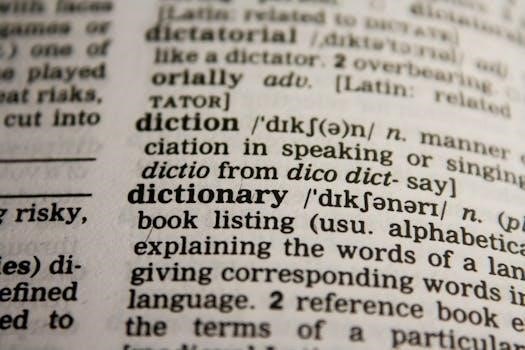Here’s the text for the requested section⁚

Year 7 Maths Textbook PDF⁚ A Comprehensive Guide
Welcome to a comprehensive guide dedicated to Year 7 Maths Textbook PDFs! This resource explores the availability of free textbooks, including NCERT books, and provides information on downloading and effectively utilizing these PDFs for academic success.
Here’s the text for the requested section⁚
Understanding the Importance of Year 7 Maths Textbooks
Year 7 marks a crucial transition in a student’s mathematical journey, laying the foundation for more advanced concepts. Textbooks play a vital role in this process, providing a structured and comprehensive learning experience. A good textbook offers clear explanations, numerous examples, and ample practice problems to solidify understanding. These resources, especially in PDF format, provide accessibility and convenience, allowing students to study anytime, anywhere.
The NCERT textbook, for instance, is meticulously crafted by subject matter experts, ensuring accuracy and relevance. It presents even complex ideas in a step-by-step manner, aiding comprehension. Furthermore, textbooks like Collins Maths Frameworking and Cambridge Mathematics Book 7 offer varied approaches to learning, catering to different learning styles. By engaging with these resources, students can develop a strong grasp of fundamental mathematical principles, preparing them for future academic challenges and fostering a lifelong appreciation for mathematics. The availability of free online resources and textbooks further enhances the learning experience, making quality education accessible to all.
Here’s the text for the requested section⁚
Availability of Free Year 7 Maths Textbook PDFs
The digital age has revolutionized access to educational materials, making Year 7 Maths textbook PDFs readily available for free. Numerous platforms offer these resources, including official websites like NCERT and educational websites like Vedantu. These platforms provide free access to textbooks, allowing students to download them directly to their devices. This ease of access eliminates the financial burden associated with purchasing physical textbooks, promoting equitable education.
Furthermore, online libraries and educational archives also host a variety of Year 7 Maths textbooks in PDF format. These resources often include a range of textbooks from different publishers, providing students with diverse learning materials. It’s essential to ensure the legitimacy and accuracy of the downloaded PDFs by obtaining them from reputable sources. The availability of these free PDFs empowers students to supplement their learning, reinforce concepts, and prepare effectively for examinations. With just a few clicks, students can unlock a wealth of mathematical knowledge, paving the way for academic success.
Here’s the text for the requested section⁚
NCERT Class 7 Maths Textbook⁚ An Overview
The NCERT Class 7 Maths textbook serves as a cornerstone for mathematics education in many regions. This textbook is meticulously designed to provide students with a comprehensive understanding of fundamental mathematical concepts. Prepared by subject matter experts, the NCERT textbook offers detailed explanations, step-by-step solutions, and a structured approach to learning. The content is presented in a clear and concise manner, making it accessible to students of varying learning styles.
The textbook covers a wide array of topics, ranging from integers and fractions to geometry and algebra. Each chapter is carefully crafted to build upon previous knowledge, ensuring a smooth learning progression. Furthermore, the NCERT textbook emphasizes problem-solving skills, encouraging students to apply their understanding to real-world scenarios. The textbook also includes numerous exercises and examples to reinforce learning and assess comprehension. Available in both English and Hindi, the NCERT Class 7 Maths textbook is an invaluable resource for students seeking a strong foundation in mathematics. Its comprehensive approach and accessibility make it an essential tool for both classroom learning and independent study.
Here’s the text for the requested section⁚
Key Topics Covered in Year 7 Maths Textbooks
Year 7 maths textbooks typically cover a range of essential topics designed to build a strong foundation in mathematics. These topics often include number systems, focusing on integers, fractions, decimals, and percentages, enabling students to perform calculations and solve problems involving these concepts. Algebra is introduced through algebraic expressions, simple equations, and basic graphing, laying the groundwork for more advanced algebraic studies.
Geometry is another key area, encompassing shapes, angles, and spatial reasoning, often including the study of triangles and their properties. Measurement concepts such as area, perimeter, and volume are also addressed, providing practical applications of mathematical principles. Data handling and statistics are introduced through data collection, representation, and interpretation, fostering critical thinking and analytical skills. Ratio and proportion are explored, enabling students to understand relationships between quantities. Throughout these topics, problem-solving skills are emphasized, encouraging students to apply their knowledge to real-world scenarios. The curriculum aims to develop mathematical fluency, reasoning, and problem-solving abilities, preparing students for future mathematical challenges.
Here’s the text for the requested section⁚
Geometry⁚ Triangles and Their Properties
In Year 7 maths textbooks, the study of geometry often includes a dedicated section on triangles and their properties. This section delves into the fundamental characteristics of triangles, including their classification based on sides (equilateral, isosceles, scalene) and angles (acute, right, obtuse). Students learn to identify and differentiate between these types of triangles, understanding the relationships between their sides and angles.
The properties of triangles, such as the angle sum property (the sum of angles in a triangle is 180 degrees), are thoroughly explored, enabling students to solve problems involving unknown angles. The concept of the altitude of a triangle, which is the perpendicular distance from a vertex to the opposite side, is introduced; Exterior angles of triangles and their relationship to interior angles are also examined. The study of triangles provides a solid foundation for understanding more complex geometric concepts and develops logical reasoning skills.
Here’s the text for the requested section⁚
Integers⁚ Chapter 1 of NCERT Maths Textbook
Chapter 1 of the NCERT Maths textbook for Class 7 typically introduces the concept of integers. Integers are whole numbers, which can be positive, negative, or zero. This chapter aims to build upon students’ existing knowledge of whole numbers by expanding their understanding to include negative numbers and their applications. The chapter begins by defining integers and representing them on a number line.
Students learn how to perform basic arithmetic operations (addition, subtraction, multiplication, and division) with integers, paying close attention to the rules for signs. The concept of absolute value, which represents the distance of a number from zero, is also introduced. Practical examples and word problems are included to illustrate the real-world applications of integers, such as representing temperature changes, financial transactions, and elevations above or below sea level. The NCERT textbook provides a comprehensive and step-by-step approach to understanding integers, ensuring that students develop a solid foundation for more advanced mathematical concepts.
Here’s the text for the requested section⁚
Algebraic Expressions
Algebraic expressions form a fundamental part of the Year 7 mathematics curriculum, serving as a bridge between arithmetic and more advanced algebraic concepts. These expressions involve variables, constants, and mathematical operations. Students are introduced to the concept of a variable as a symbol representing an unknown quantity. They learn to construct algebraic expressions by combining variables, constants, and operators such as addition, subtraction, multiplication, and division.
The focus is on understanding how to translate real-world scenarios into algebraic form. For example, “a number increased by five” can be represented as “x + 5”. Simplifying algebraic expressions is a key skill taught in this section, involving combining like terms to reduce the expression to its simplest form; Students learn to identify and combine terms with the same variable and exponent. This section lays the groundwork for solving equations and inequalities in later grades.
Here’s the text for the requested section⁚
Free Online Resources and Textbooks

A wealth of free online resources and textbooks are available for Year 7 maths students. These resources provide accessible and cost-effective alternatives to traditional textbooks. Many educational websites and platforms offer free PDF downloads of maths textbooks, workbooks, and worksheets. These materials often cover the entire Year 7 maths curriculum, including topics like number, algebra, geometry, and statistics.
Online platforms such as Vedantu, Open School BC, and NCERT’s official website offer free access to textbooks and supporting materials. These resources often include interactive exercises, practice problems, and solutions to help students reinforce their understanding of key concepts. Additionally, websites like Archive.org host a vast collection of digitized textbooks, making them readily available for download. These free online resources can be invaluable tools for students seeking to supplement their learning.
Here’s the text for the requested section⁚
Collins Maths Frameworking Textbooks for Year 7
Collins Maths Frameworking textbooks are a popular choice for Year 7 maths education, offering a structured approach to learning. These textbooks are designed to align with curriculum standards and provide comprehensive coverage of key mathematical concepts. They often include a variety of features to support student learning, such as worked examples, practice exercises, and assessment opportunities.
While physical copies of Collins Maths Frameworking textbooks are typically purchased, digital resources and online support materials may be available. These online resources can include interactive activities, worksheets, and solutions to textbook questions. Accessing these digital components can enhance the learning experience and provide students with additional opportunities to practice and reinforce their understanding of the material. Availability of these resources should be checked with the publisher.
Here’s the text for the requested section⁚
Cambridge Mathematics Book 7⁚ Teacher’s Resource
The Cambridge Mathematics Book 7 Teacher’s Resource is an invaluable asset for educators guiding Year 7 students through their mathematical journey. This resource complements the student textbook, offering a wealth of support materials designed to enhance teaching effectiveness and student comprehension. It typically includes detailed lesson plans, assessment tools, and answers to textbook questions.

A key feature of the Teacher’s Resource is its focus on addressing common student misconceptions and mistakes. It provides insights into potential areas of difficulty and offers strategies for overcoming these challenges. Furthermore, the resource often includes step-by-step workings and explanations for exercises, enabling teachers to effectively guide students through problem-solving processes. Remember to look for online resources alongside the physical textbook.

Here’s the text for the requested section⁚
Downloading and Using PDF Textbooks Effectively
Downloading Year 7 Maths textbook PDFs can be a convenient and cost-effective way to access learning materials. Many platforms, including NCERT’s official website and educational websites like Vedantu, offer free downloads. Before downloading, ensure the source is reputable to avoid malware or low-quality content.
Once downloaded, effective use is crucial. Utilize PDF readers that allow annotation, highlighting, and note-taking for active engagement. Organize your files into folders for easy access and consider using cloud storage for accessibility across devices. When studying, focus on understanding concepts rather than rote memorization. Work through examples step-by-step and utilize online resources for additional support. Supplement your studies with practice problems and seek clarification from teachers or tutors when needed. Remember, consistent effort and active engagement are key to success.
Here’s the text for the requested section⁚
Alternative Textbook Options and Publishers
While free PDF textbooks offer convenience, exploring alternative options and publishers can enhance the learning experience. Consider textbooks from established publishers like Collins, known for their Maths Frameworking series, or Cambridge, offering comprehensive resources like Cambridge Mathematics Book 7. These often provide structured content, practice exercises, and teacher resources.
Other publishers like McGraw Hill also offer materials, sometimes available as digital downloads. Open educational resources (OER) can be another avenue, providing free or low-cost materials licensed for reuse and adaptation. When selecting a textbook, consider factors like alignment with the curriculum, clarity of explanations, availability of support materials, and student reviews. Exploring different options allows you to find a resource that best suits your individual learning style and needs. Remember to check for updated editions and errata to ensure accuracy.
